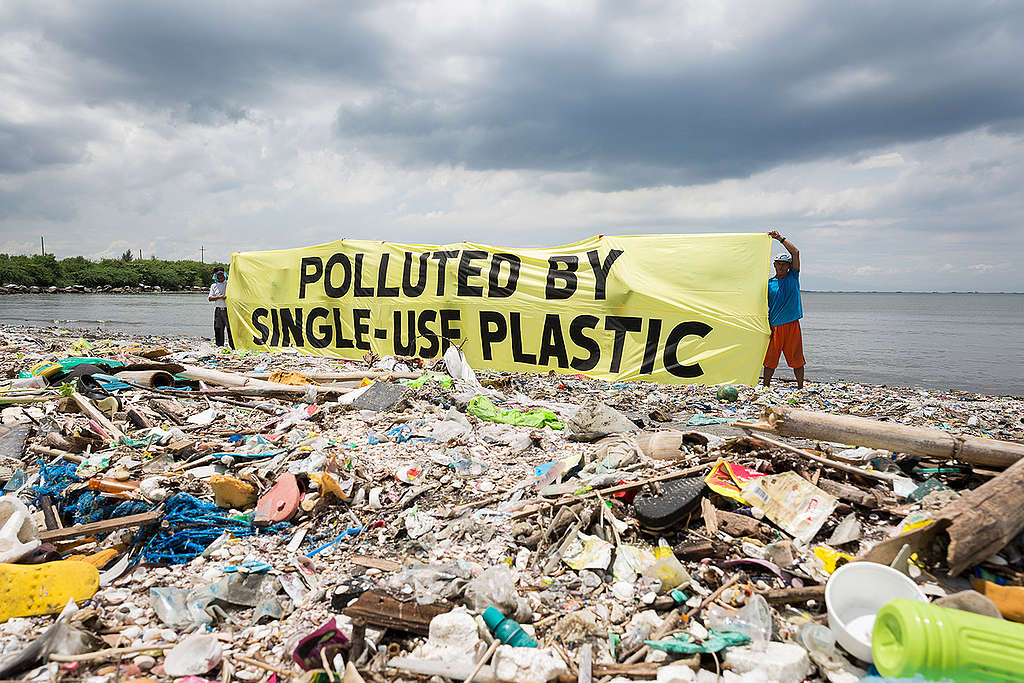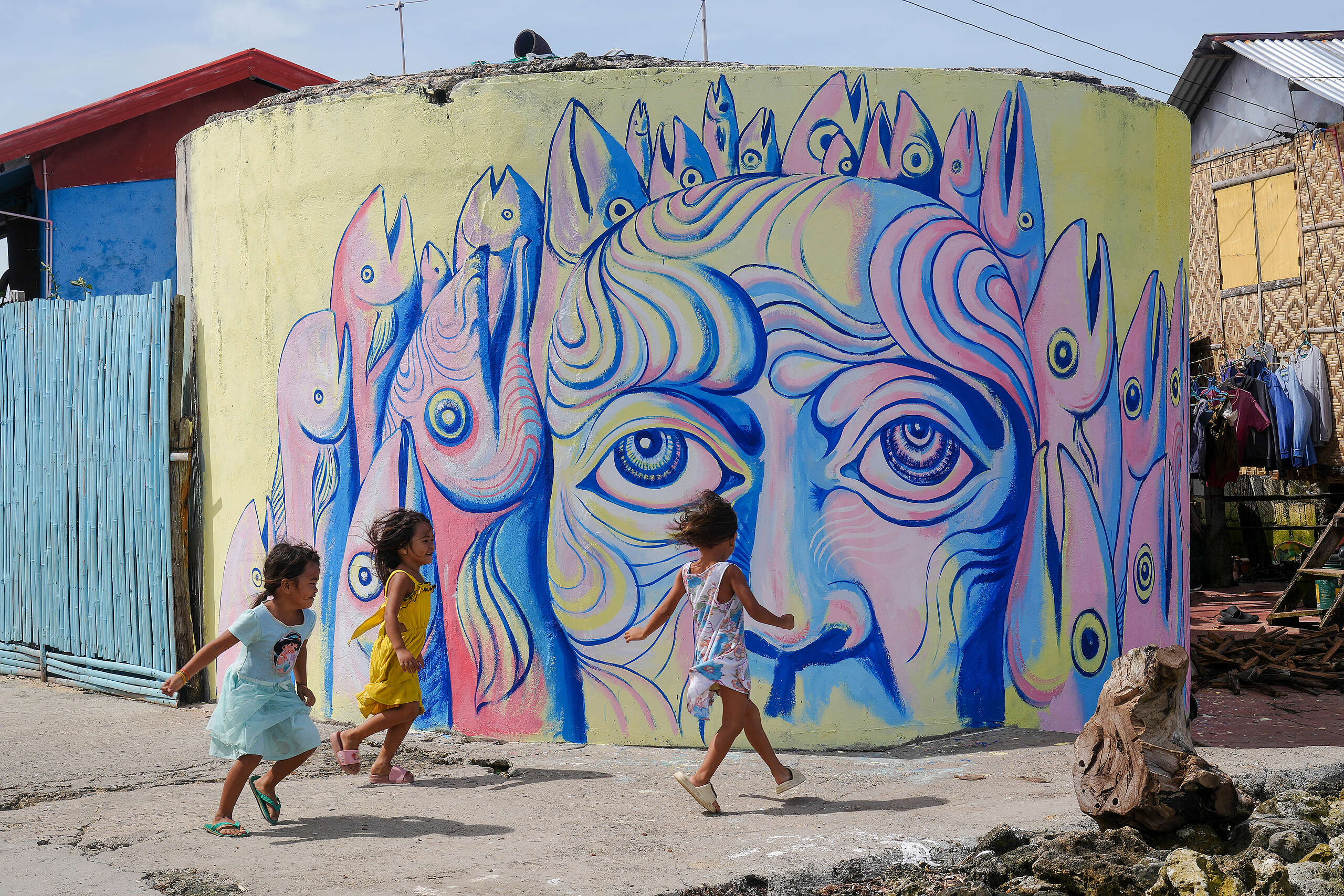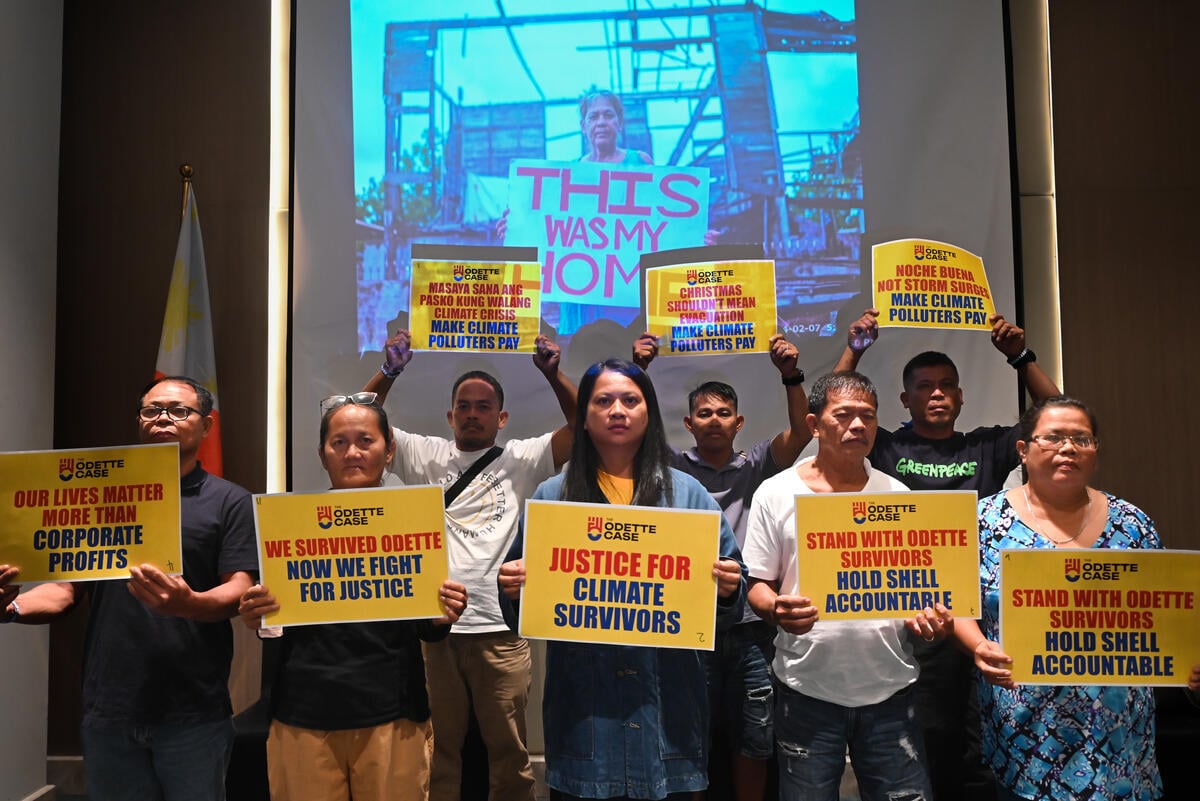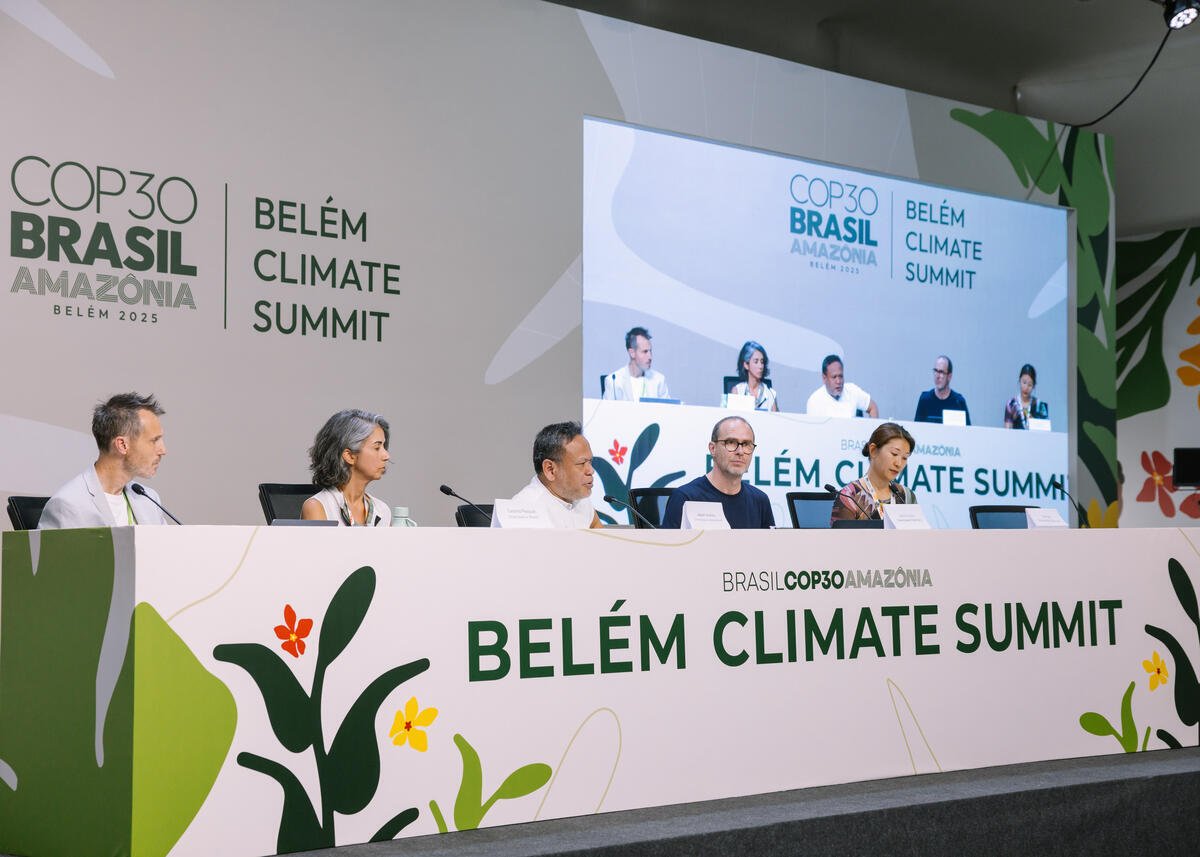Top plastic polluters also drive climate crisis – Greenpeace report
Quezon City, Philippines—Environmental organization Greenpeace Philippines today called on the national government to regulate plastic production and enact a strong ban on single-use plastics (SUP) and non-environmentally acceptable products (NEAP) as part of urgent climate plans. The call came following the release of a Greenpeace report showing how consumer goods companies are driving the expansion of plastic production and threatening the global climate and communities.

The report, titled The Climate Emergency Unpacked: How Consumer Goods Companies are Fueling Big Oil’s Plastic Expansion [1], also exposed the business links between the world’s largest brands and fossil fuel companies—some of which operate in the Philippines—and the lack of transparency around emissions from plastic packaging.
“It’s clear that Nestlé, Coca-Cola, Unilever [2]—all known brands in our country—and other consumer goods companies are not just responsible for plastic pollution, but also play key roles in the fossil fuel industry’s expansion and the climate crisis,” said Greenpeace Zero Waste Campaigner Marian Ledesma. “These big brands often promote their climate commitments to much fanfare, but in reality, they are actively contributing to the climate crisis and exacerbating its impacts, such as worsening typhoons, flooding, food insecurity, loss of livelihoods, and loss of life, for Filipinos.”
The report identified relationships between nine major consumer goods companies and at least one major fossil fuel and/or petrochemical company. Consumer goods companies buy packaging from manufacturers supplied with plastic resin or petrochemicals by companies like ExxonMobil, Shell, Total, Ineos, and Dow [3]. They have also partnered with fossil fuel companies for decades to promote plastic recycling despite its failures, and opposed legislation restricting single-use packaging.
In the Philippines and many other countries, these companies tout harmful approaches such as so-called “chemical recycling” projects, cement kiln incineration, and other false solutions in an attempt to divert the public’s attention from reduction of plastic production and other necessary systemic changes.
Without transparency around their relationship with fossil fuel companies, consumer goods corporations are largely able to avoid accountability for environmental or human rights harms committed by the companies that supply plastic for their packaging. With the absence of strong restrictions on plastic production, these companies pollute with impunity, passing the cost of clean-up to the public, and worse, ignoring the injustice, emissions, health risks, and environmental destruction arising from the entire life cycle of plastic.
Without immediate action, plastic production could triple by 2050, according to industry estimates. This projected growth would increase global emissions from the plastic life cycle to an equivalent of nearly 300 coal-fired power plants by 2030. However, within this same timeframe, the Intergovernmental Panel on Climate Change has warned human-caused emissions must fall by nearly 50 percent to limit warming to 1.5℃.
“These findings underscore the need for the government to mandate plastic reduction and reuse systems in the consumer goods industry to prevent further global heating,” Ledesma said. “On the part of companies, if they genuinely care about their impact on the environment and people, they would sever their ties with fossil fuels and make urgent commitments to phase out disposable plastic packaging and transition to reusable and packaging-free systems.”
Greenpeace said that the government must put in place effective regulations to ensure that consumer goods companies drastically reduce their plastic pollution. The group called on the Philippine Senate to pass a stronger legislation on banning single-use plastics, noting that the current version passed by the House supports false solutions and does not mandate SUP reduction targets.
Consumer goods companies must in turn urgently move toward systems of reuse and package-free products. They must phase out all single-use plastics and be more transparent about their plastic footprint, including the climate footprint of their packaging. Further, they must also support an ambitious global plastics treaty that addresses the entire life cycle of plastic and which emphasizes reduction.
Notes:
[1] The report, which is published by Greenpeace USA, reveals how consumer goods companies like Coca-Cola, PepsiCo, and Nestlé are driving the expansion of plastic production and threatening the global climate and communities around the world. It also exposes the business links between the world’s largest consumer goods and fossil fuel companies and the overall lack of transparency around emissions from plastic packaging.
[2] Nestle, Unilever, and Coca-cola are among the identified top plastic polluters in the Philippines and the world. Read more.
[3] Top fossil fuel companies, such as Exxon, Total, and Shell, are among the respondents to the world’s first climate change and human rights inquiry currently filed at the Commission on Human Rights. Read more.
Additional note: For another example of industry tactics to undermine climate action, see this recent story aired by Channel 4 news in the UK..



